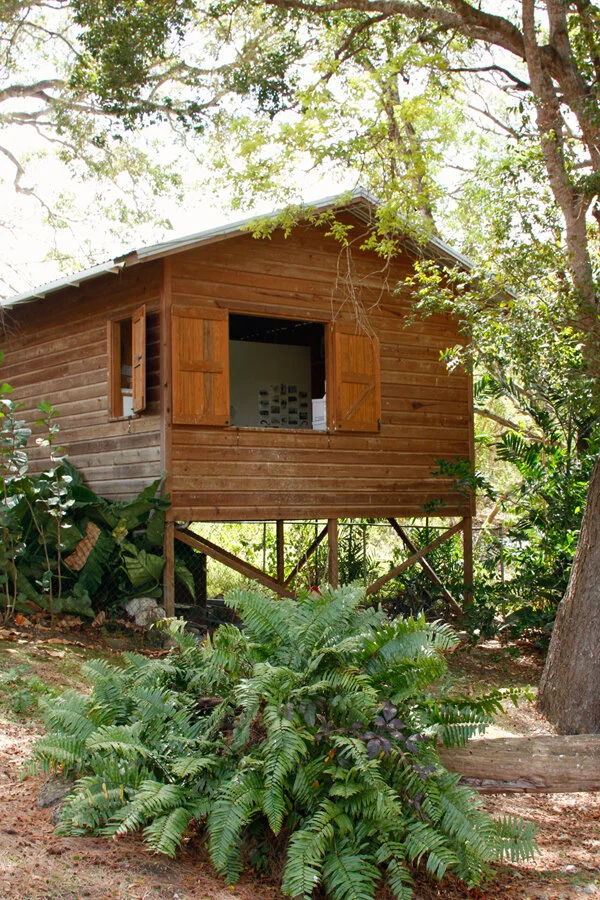
Artist Statement
How can we unlearn the plantation? This inquiry resonates with me from my home, Barbados, the world’s youngest Republic where questions swirl around the vestiges of the trans-Atlantic slave trade, plantation economies, tourism, and land use while navigating shared memories. The site where I live and work, once a 17th-century sugarcane plantation, provides critical context for my practice. I engage with the plantation’s residue through the landscape it irrevocably altered and its continued impact on the contemporary environment, including this era of the plantationocene. My interdisciplinary practice suggests future strategies for repair and thriving while investigating the role of botanicals and living plots as alternative sites of refusal, counter-knowledge, community, and healing. Rituals of walking in former sugar cane fields continually open up the space anew, allowing me to imagine how to form more intimate relationships with landscapes heavily mediated by centuries of monocropping succeeded by tourist economies.
More recent works made communally include living apothecaries, embroidery panels, and secular sounds as gestures of ‘kinning’ or making-with. Slowly-made embroidery tapestries acknowledge British sewing traditions inherited by Barbadian women across race and class, instilling notions of what it meant to be feminine by training middle- and upper-class women into becoming submissive housewives abiding by the church’s teachings and moral codes of respectability. Conversely, my counter-use of this medium addresses more indelicate discourse such as the impact of mono-crop farming and the plantation on today’s climate emergency in a mash-up of fabrics, threads, and traditions acknowledging the creolization inherent in the formation of post-independent Barbados.
Instead of producing decorative works for the living room, once the prescribed domain of women, these living plots, tapestries, and sounds tie the plantation to the sixth extinction, advocating for the worship of flowers, the need to unlearn the plantation and defend nature through ecologies of care.
Image: The Milking Parlour Studio
Downloads (click)
